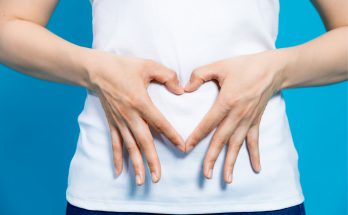Between late nights filled with homework, Tik Tok binges and whatever else your teenager is up to they are most likely exhausted. As a result, they may turn to energy drinks, coffee, or other sources of caffeine. It’s estimated that around 73 percent of adolescents have embraced the caffeine habit.
This situation is scarier (and deadlier) than you may realize. For example, a South Carolina teen died from a caffeine-induced cardiac event, despite not having any heart conditions. He had drunk a latte, a large Diet Mountain Dew, and an energy drink in two hours.
So is it safe for teens to drink caffeine at all? If so, how much? And how do you know if your teen has had too much before something life-threatening happens?
According to the American Academy of Pediatrics, adolescents should stop their caffeine intake after around 100 milligrams a day. This looks like a cup of coffee, a few sodas, or a couple cups of tea.
To learn more about the warning signs of excessive consumption as well as its effects, we spoke with Jill Cioffi, MD, Medical Director of Ambulatory Primary Care Pediatrics at Stony Brook Children’s Hospital.
How caffeine can affect your teen
“There are no long-term studies on the safety of caffeine specifically in children and adolescents,” Dr. Cioffi said. However, even amounts considered “low dose” — 50 milligrams — can affect your teenager’s sleep and behavior at school.
“Low dose caffeine intake…is associated with sleep disturbances, especially when consumed later in the day,” Dr. Cioffi said. “Poor sleep has been found to correlate with both behavioral school problems and low school performance.”
And the more caffeine your teen drinks, the more problems they’ll experience. “Moderate caffeine intake is associated with dehydration, rebound sleepiness, and poor attention. It also is found to increase anxiety and panic attacks,” Dr. Cioffi explained. “High caffeine doses — over 400 mg — are associated with caffeine intoxication resulting in heart rate, high blood pressure, and cardiac arrhythmias.”
But if teens are going to drink caffeine regardless — hey, I can’t blame them — Dr. Cioffi added that pediatricians advise against energy drinks, at the minimum.
Warning signs your teen has had too much caffeine
You may not notice some of the caffeine’s effects. Sometimes they happen at school, and some aren’t externally recognizable. So how can you know if your teen is OK?
Other than paying attention to your teen’s habits around coffee, tea, soda, and energy drinks, you can check in with them about how they’re doing. “Symptoms such as insomnia, agitation, sleepiness (when not drinking caffeine), and acting sluggish from chronic dehydration may also be clues. Other symptoms common in patients who drink too much caffeine are rebound headaches, agitation, and tremors,” Dr. Cioffi said.
She also mentioned signs such as negative social, emotional, and behavioral changes; trouble paying attention consistently; and increased struggles surrounding anxiety and depression.
So again, it’s best to communicate with your teen about these symptoms as they may not share them outright, and you may not be able to see them quickly.
Ultimately, your teen is probably going to enjoy caffeinated beverages — but you can know what to look out for to help keep them safe and healthy.



